Deposition
Deposition is the process by which sediments, soil, and rocks are added to a landform or landmass. It is one of the key processes in the geological cycle, which also includes erosion, transportation, and lithification.
Key Points to Remember:
- Deposition is the process of dropping or depositing sediment in a new location.
- It is the opposite of erosion, where sediments are removed from a landform.
- Deposition can occur through various natural processes such as wind, water, ice, and gravity.
- Examples of deposition include the formation of sand dunes, river deltas, and sedimentary rock layers.
- Deposition is an essential part of the rock cycle and contributes to the formation of new geological formations over time.
Study Guide Questions:
- What is deposition and how does it differ from erosion?
- Describe the various natural processes that can lead to deposition.
- Provide examples of landforms or geological features that are formed as a result of deposition.
- Explain the significance of deposition in the context of the rock cycle and the formation of Earth's landscapes.
[Deposition] Related Worksheets and Study Guides:
.◂Science Worksheets and Study Guides Second Grade. Plants
Study Guide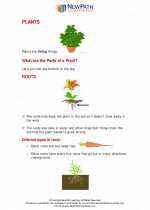 Plants
Plants  Activity Lesson
Activity Lesson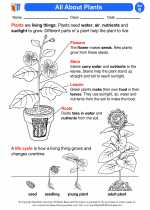 All About Plants
All About Plants  Activity Lesson
Activity Lesson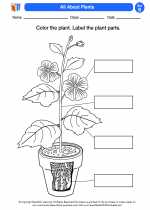 All About Plants
All About Plants  Worksheet/Answer key
Worksheet/Answer key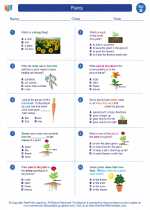 Plants
Plants  Worksheet/Answer key
Worksheet/Answer key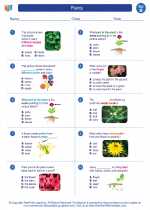 Plants
Plants  Worksheet/Answer key
Worksheet/Answer key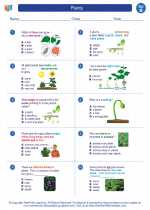 Plants
Plants  Worksheet/Answer key
Worksheet/Answer key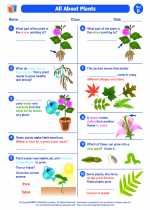 All About Plants
All About Plants  Vocabulary/Answer key
Vocabulary/Answer key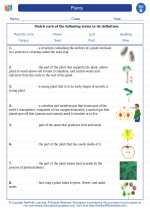 Plants
Plants  Vocabulary/Answer key
Vocabulary/Answer key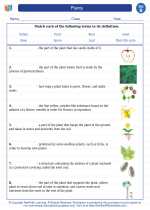 Plants
Plants 

 Activity Lesson
Activity Lesson
 Activity Lesson
Activity Lesson
 Worksheet/Answer key
Worksheet/Answer key
 Worksheet/Answer key
Worksheet/Answer key
 Worksheet/Answer key
Worksheet/Answer key
 Worksheet/Answer key
Worksheet/Answer key
 Vocabulary/Answer key
Vocabulary/Answer key
 Vocabulary/Answer key
Vocabulary/Answer key

The resources above cover the following skills:
Concepts of Life Science (SC1, SC2, SC3)
The student demonstrates an understanding of the structure, function, behavior, development, life cycles, and diversity of living organisms by observing and comparing external features of plants and of animals that may help them grow, survive, and reproduce.